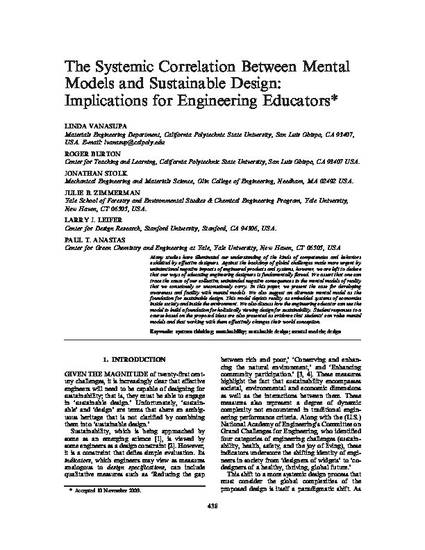
Many studies have illuminated our understanding of the kinds of competencies and behaviors exhibited by effective designers. Against the backdrop of global challenges made more urgent by unintentional negative impacts of engineered products and systems, however, we are left to deduce that our ways of educating engineering designers is fundamentally flawed. We assert that one can trace the cause of our collective, unintended negative consequences to the mental models of reality that we consciously or unconsciously carry. In this paper, we present the case for developing awareness and facility with mental models. We also suggest an alternate mental model as the foundation for sustainable design. This model depicts reality as embedded systems of economies inside society and inside the environment. We also discuss how the engineering educator can use the model to build a foundation for holistically viewing design for sustainability. Student responses to a course based on the proposed ideas are also presented as evidence that students’ can value mental models and that working with them effectively changes their world conception.
Copyright © 2010 International Journal of Engineering Education.
Available at: http://works.bepress.com/lvanasup/66/
